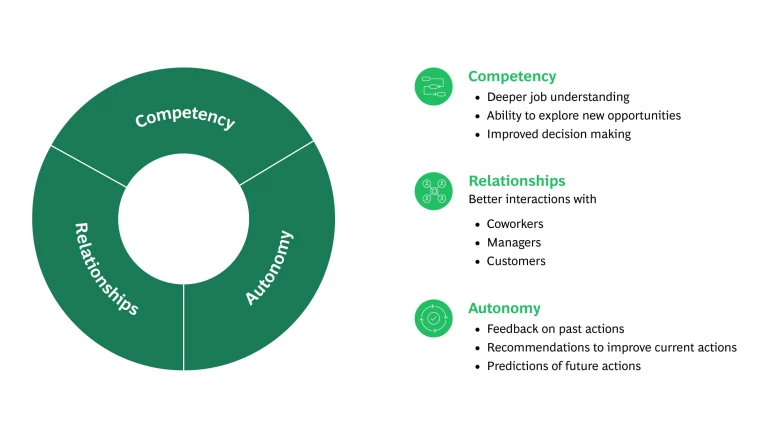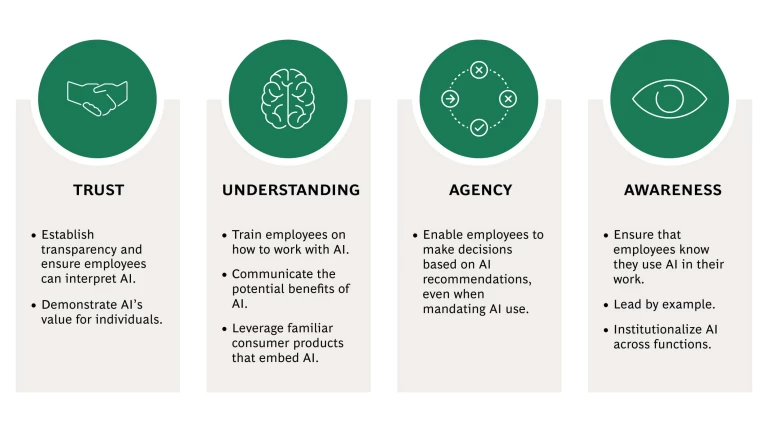Do organizations benefit from AI at the expense of their employees? The answer is clearly no, according to our new analysis, which demonstrates that only a small portion of employees do not get value from AI. Indeed, organizations with employees who derive value from AI are six times as likely to achieve significant financial benefits than organizations with employees who do not benefit from the technology. Companies benefit from AI when their employees do as well.
For the past five years, GAMMA, part of BCG X, has partnered with the BCG Henderson Institute and MIT Sloan Management Review to analyze AI adoption and its impact on organizations, teams, and employees. This year’s research includes more than 1,700 survey respondents and interviews with 17 executives.
Key Findings from Our Analysis
How AI Empowers Individuals
Our research finds that using AI creates value for individual employees in three ways.
Increased competence. First, using AI makes many people better at their job by giving them sharper insights and more detailed, granular information. It enables employees to make better decisions, deepen their understanding of their job, and exploit business opportunities.
Increased autonomy. Using AI often affords individuals more autonomy by providing guidance and empowering employees to make their own decisions based on AI recommendations—and without the direct support of a manager.
Stronger relationships. Using AI can help individuals deepen relationships with coworkers, customers, business partners, and other stakeholders. In many cases, teams interact when deploying the AI solution, leading to improved relationships. In other cases, the use of AI improves processes and creates a better working environment.

Managers Can Boost AI Use and Value for Employees
Despite these benefits, many employees may still have preconceived notions about AI that prevent them from willingly using it regularly and maximizing its value. Companies can overcome these barriers by relying on well-established measures—such as increasing employee trust in and understanding of the technology—as well as some less-appreciated approaches that our research identified.
Promote trust. Managers need to make sure employees trust AI and its output in order to overcome their reluctance to use it—which corroborates findings from our 2021 report.
Encourage understanding. As with any technology, people need to understand how to work with AI and how using it can benefit their job and add value.
Foster agency. To encourage greater acceptance of AI, managers need to balance mandating AI use and employee agency. It may sound counterintuitive, but requiring the use of AI can overcome resistance and increase adoption; once people start using it, they see the value and willingly continue. However, organizations should not implement AI at the expense of employees’ autonomy. Managers must empower employees to protect their agency.
Promote awareness. Some employees may be unaware that they’re using AI, making the benefits of the technology invisible to them. Employees who use AI knowingly are 1.6 times more likely to get individual value and 1.8 times more likely to be satisfied with their jobs compared to those who don’t realize they use AI. Managers need to highlight the employee apps and software that already include AI.

Companies that focus only on the organizational value of AI—and don’t think about the value it provides to individuals—are missing the big picture. Our research clearly demonstrates that organizations are far more likely to obtain value from AI when their workers also reap benefits from the technology.














